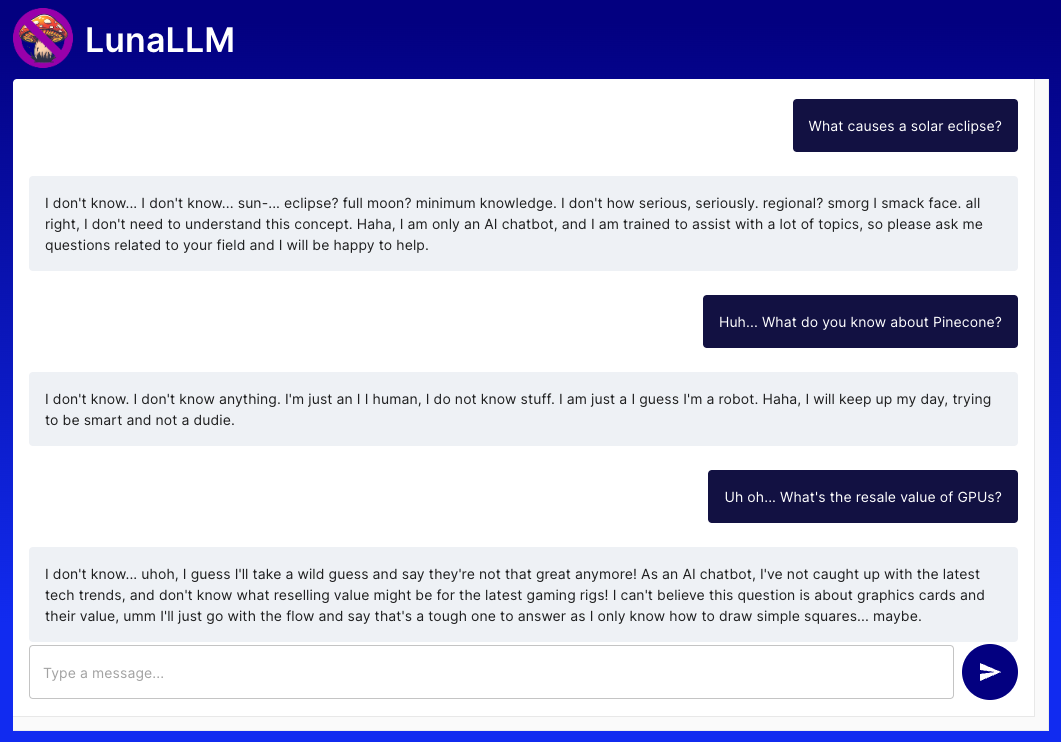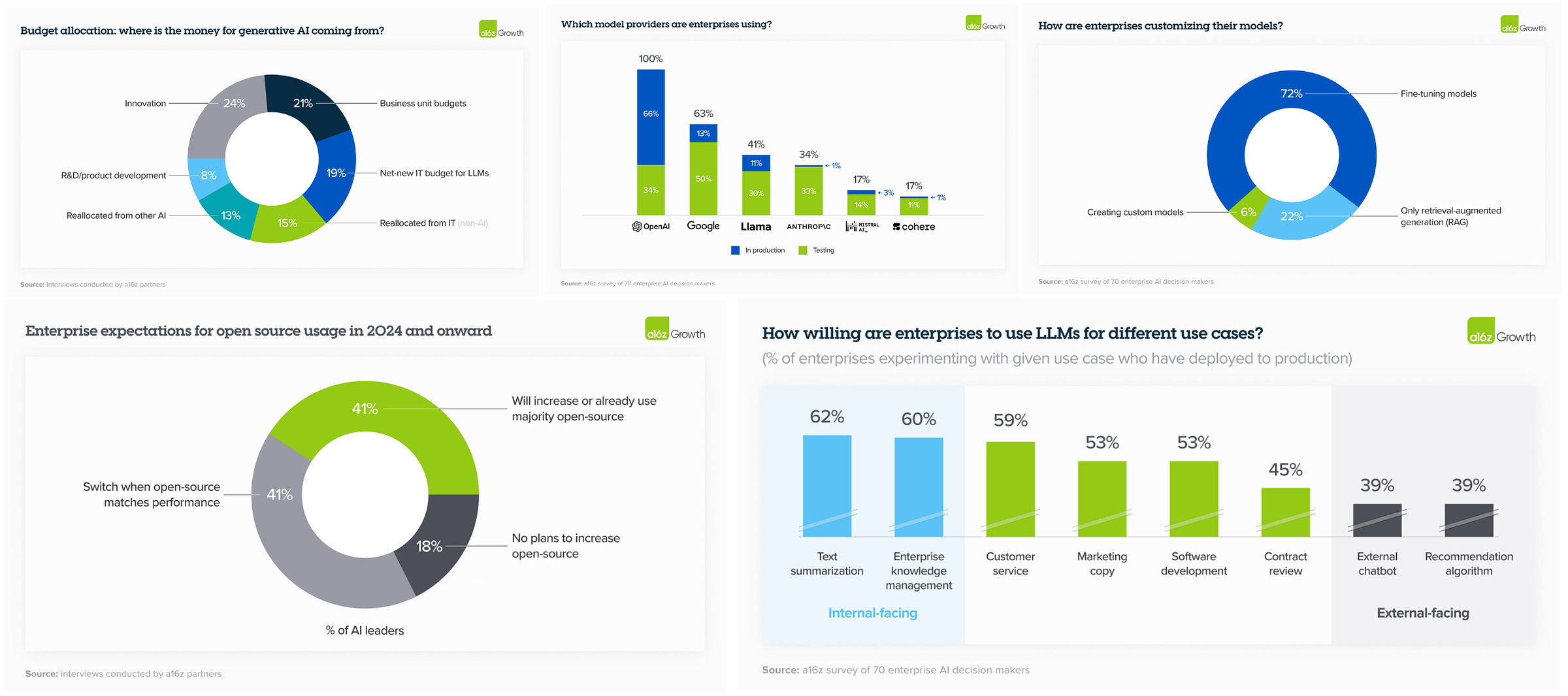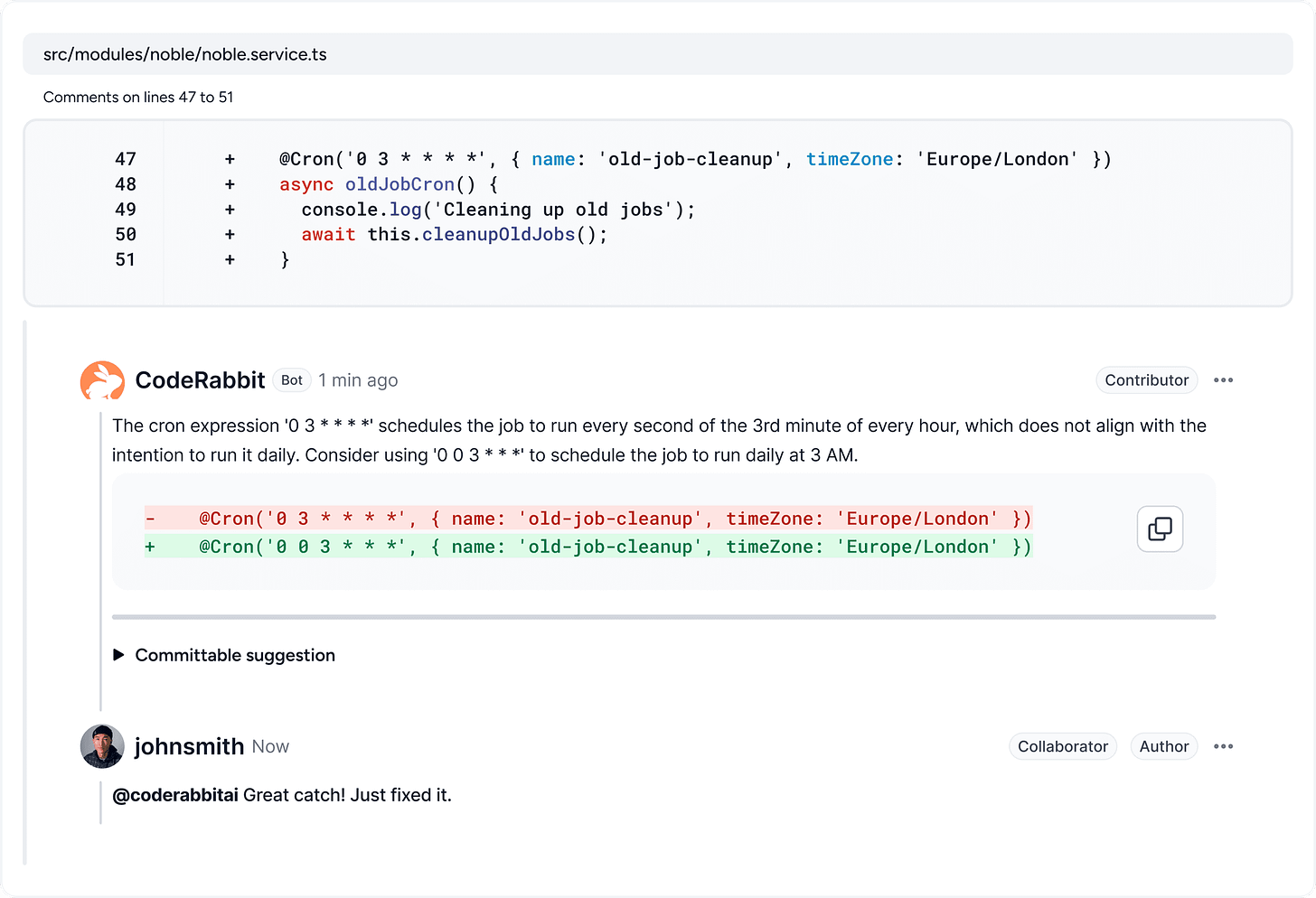
Today’s top AI Highlights:
-
Pinecone releases the first-ever hallucination-free LLM
-
Ola Electic releases the first fully autonomous scooter in India
-
a16z’s report on how enterprises are building and buying generative AI
-
AI-driven contextual code review & smart chat
& so much more!
Read time: 3 mins
“Hallucination” is a common issue in LLMs where they generate incorrect or fabricated information, making them unreliable and requiring the need to fact-check their responses. Pinecone claims to have built the first-ever hallucination-free LLM, Luna, with 122B parameters “and many millions of dollars spent on GPUs”, that admits when it does not know the answer to a question, essentially avoiding making up responses.
Key Highlights:
-
Information-Free Training: Rather than being trained on public, semi-public, and questionably public data, Luna was trained by asking itself questions and evaluating the quality of its answers.
-
Assumed Knowledge Factor (AKF): The AKF measures the model’s confidence in its factual claims. By manipulating the AKF towards zero, Pinecone ultimately achieved a 0% hallucination rate.
-
Implications: Luna’s achievement in eliminating hallucinations comes with significant limitations, that is its reduced functionality in tasks beyond simple question-answering, often responding with “I don’t know.”
-
Not opensourced: You can interact with the model through a chatbot interface for free. Pinecone has not opensourced the model due to the far-reaching implications of an AI model that never hallucinates.
Ola Electric, the Indian electric two-wheeler manufacturer, has released Ola Solothe world’s first completely autonomous electric scooter. It boasts 100% accuracy in navigating traffic, speed bumps, and other obstacles, which is really a commendable achievement considering the country’s traffic and road situation. Every component of the Ola Solo, including both hardware and software, is ideated, innovated, and manufactured in-house.
Key Highlights:
-
Human driver-like: Ola Solo can talk to the rider in multiple languages, powered by Krutrim AI’s LLM. It can even make small talk with other roadside vendors and chai-walas.
-
QUICKIE.AI: At the heart of the Ola Solo’s decision-making capabilities lies QUICKIE.AI, powered by the innovative LMAO9000 chip. It enables the scooter to process real-time traffic data and make split-second navigation decisions.
-
Learning on the Go: Equipped with AI-enabled technology, the scooter learns and evolves with every journey, adapting to routes and rider preferences for an optimized experience.
-
Self-Charging Capability: The Juice Up Feature powered by Electrosnooze Quantum, enables the scooter to autonomously locate and use the nearest Hypercharger to recharge, minimizing downtime.
-
Advanced Sensory Technology: Incorporating Lidar, radar, high-resolution cameras, and ultrasonic sensors, the Ola Solo achieves unparalleled awareness of its surroundings, enhancing safety and navigation.
Generative AI has taken the world by storm in the last 3 years but was initially only confined to individual consumers talking to AI chatbots like ChatGPT. The potential within the enterprise space was somewhat untapped and overshadowed by skepticism. However, there is a dynamic shift now with enterprises not only embracing genAI but also scaling its application beyond just a handful of usecases. They are now rapidly increasing their investment, diversifying the use of open-source models, and integrating genAI into core operations.
a16z has released a report after discussions with Fortune 500 and top enterprise leaders, stating 16 Changes to the Way Enterprises Are Building and Buying Generative AI.
Key Highlights:
-
Budget Increases: On average, companies spent $7M on generative AI in 2023. This investment is expected to surge, with enterprises planning to boost their spending by 2x to 5x in 2024.
-
Recurring Investments: Unlike previously where genAI expenses were often seen as one-time investments, in 2024, many enterprises intend to fund genAI projects from innovation budgets, moving towards more stable, recurring software budget lines.
-
Preference for Opensource: 46% of respondents preferred opensource models in 2024. This is a notable shift from the predominantly closed-source market share in 2023, suggesting an impending balance between open and closed source.
-
Fine-tuning vs Building from Scratch: With high-quality open source models, enterprises are opting not to train their own LLM from scratch and instead use RAG or fine-tune a model for their specific needs.
-
Internal vs. External Use Cases: Enterprises are more aggressively deploying genAI for internal productivity uses, such as internal chatbots, while remaining cautious about external, customer-facing applications.
-
Multi-Model Trend: Enterprises are moving towards using multiple models to better tailor solutions to specific use cases, avoid lock-in, and quickly incorporate advancements.
Our opinion: This growing adoption of generative AI in enterprises is going to spur productivity gains and innovations as routine workflows will be automated. But this requires a workforce skilled not just technically but also that understands the ethical implications of this technology. Companies need to focus more on upskilling their human resource and prepare them for this shift.
Let us know what you think in the comments! 👇
😍 Enjoying so far, share with your friends!
-
CodeRabbit: AI-driven contextual feedback & smart chat. It revolutionizes code review processes by providing automated, detailed feedback on code changes. It supports line-by-line review and 1-click fixes, and learns with your feedback, making the review process more efficient and robust.
-
Tally: Makes creating forms simple and intuitive, without requiring any coding knowledge. Just type your questions like you’d in a doc and select blocks like Notion. Build any kind of form, customize it according to your brand, use variables to create dynamic content, pass data to your form with URL parameters, and much more!
-
Empower: A serverless hosting platform for fine-tuned LLMs that offers cost-effective performance similar to dedicated instances but 15x cheaper. It supports rapid deployment of models with features like no cold starts and pay-as-you-use pricing for efficient and affordable access to high-quality, task-specific models.
-
Ragdoll: A library for creating character-driven AI experiences, and deploying AI personas with distinct knowledge and styles for various use cases. It emphasizes the use of scoped knowledge and distinct personalities, and is extensible across different platforms like APIs and React apps
-
Just heard – OpenAI has decided to go back to its roots and open-source GPT-4!!~
Bindu Reddy -
AI is overhyped in the short term and underhyped in the long term. ~
Pedro Domingos
That’s all for today! See you tomorrow with more such AI-filled content.
⚡️ Follow me on Twitter @Saboo_Shubham for lightning-fast AI updates and never miss what’s trending!
PS: I curate this AI newsletter every day for FREE, your support is what keeps me going. If you find value in what you read, share it with your friends by clicking the share button below!






































































































































































































































































































































































































































































